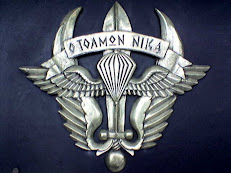This possibility has for some time been raised by several foreign opinion makers, too. Perhaps such a danger has also prompted Turkey to get actively involved in efforts to dissuade Iran from acquiring nuclear weapons.
The world public is confused, in the meantime, over whether Iran is close to acquiring nuclear weapons and whether it has the ability to do so. But it seems that it is too late to focus on whether it has the ability or not since world powers, primarily the US, have already brought Iran to a point where no effort seems to be stopping Tehran from a nuclear standoff with the international community. Even relatively liberal Iranians engaged in fierce street demonstrations against the Tehran regime appear to have united behind the regime on Iran’s nerve-wracking standoff with the world in the nuclear weapons debate.
Turkish Foreign Minister Ahmet Davutoğlu was in Tehran last Tuesday to see whether Ankara can persuade the country that Turkey can serve as the venue for an exchange of Iranian nuclear fuel in an effort to ease tension between Iran and Western countries over its nuclear program. Davutoğlu’s visit took place in the midst of tensions that rose last week when Iran announced it had started the process of producing 20 percent enriched uranium, defying Western threats of fresh sanctions.
Iran is not expected to listen to Turkey nor any other country unless a mutually acceptable solution is found by the West and Iran.
Official Turkish sources are of the belief that an Iran possessing nuclear arms will be disastrous not only for Turkey but also for the already volatile Middle Eastern region, which will turn into an area where countries will engage in a nuclear arms race.
“Voices will increase tremendously in Turkey for the acquisition of nuclear arms as a means of deterrence against Iranian nuclear arms,” a Turkish diplomat said.
Unlike the West, which prepared to impose tougher sanctions on Iran, Ankara insists the standoff can be solved through dialogue, believing that economic sanctions or military action against Iran will have severe repercussions in the region.
Turkey officially argues that if Iran acquires nuclear weapons, this does not mean Turkey will follow suit. Turkey is part of NATO’s nuclear umbrella and that is sufficient, Ankara argues.
But behind closed doors, Turkey is highly concerned about nearby Iran possessing nuclear arms. So the possibility that Turkey will also acquire nuclear weapons is highly possible.
Chief of General Staff Gen. İlker Başbuğ told the Habertürk daily last week that Iran having nuclear arms will be a development against Turkey and will affect the country. He, however, stopped short of going into details.
The Turkish government’s efforts to dissuade Iran from acquiring nuclear arms should also be interpreted as a reflection of Turkish concerns over Tehran’s dangerous game.
Turkey is also of the opinion that maintaining an unidentified number of US nuclear weapons — deployed during the Cold War — at İncirlik Air Base in southern Turkey will definitely continue to serve as a deterrent for Ankara against nuclear arms possessed elsewhere.
It is hard to know how the years-long standoff between Iran and Western powers will be resolved. But if it is resolved, this will put Turkey in a beneficial position. It will then be able to tell the domestic public as well as the Islamic world that it did its best in lessening tension between Iran and the international community while criticizing Israel for acquiring nuclear weapons.
But if the standoff is not resolved and Iran ends up possessing nuclear arms, Turkey will have no choice but to acquire similar weapons, contributing to a new and highly dangerous arms race in the region.
σημερινη Zaman.










































